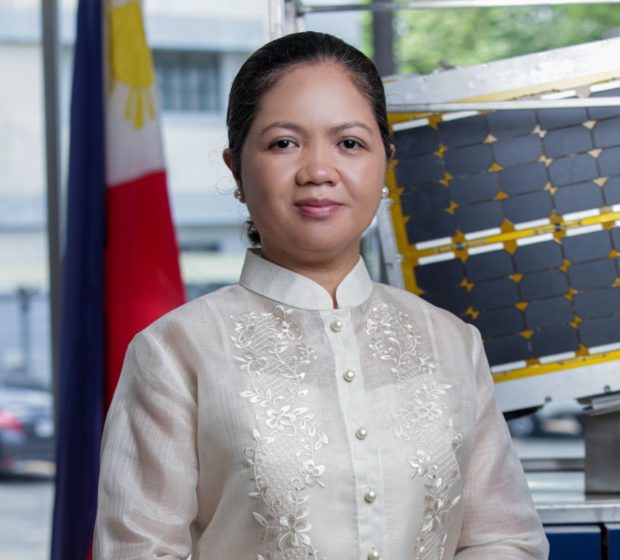
PhilSA Deputy Director General for Space Science and Technology Dr. Gay Jane P. Perez (Photo from the the Philippine Space Agency)
MANILA, Philippines — A deputy head of the Philippine Space Agency (PhilSA) has been elected as president of the International Society of Photogrammetry and Remote Sensing (ISPRS) Technical Commission on Education and Outreach – the first Filipino to hold the position according to the agency.
In a statement sent to reporters on Wednesday, PhilSA revealed that Dr. Gay Jane P. Perez, who handles the agency’s Space Science and Technology section, was the one who got elected to the said ISPRS post – one of the five commissions that make up the international organization that focuses largely on the science of studying physical objects by measuring and recording photographic images.
PhilSA said that Perez’s work during the four-year term would deal with education and outreach, along with capacity-building and enhancing technology transfer between modes of geoinformatics.
“The scientific and technical work of the ISPRS is accomplished by five (5) Technical Commissions. ISPRS Commission V, or Technical Commission V (TC V), focuses on education and outreach, and strives to promote capacity-building and know-how and technology transfer across all fields of geoinformatics, which include remote sensing, photogrammetry, and spatial information sciences,” PhilSA said.
“This is accomplished through the development of cost-effective teaching methods applicable to different levels of learners – students, educators, practitioners – and designed to bridge the gap between rapid advances in science and technology and its practical applications,” they added.
Perez said the goal of PhilSA to develop the country’s space sector jives with the aspirations of ISPRS, especially in producing individuals that can do remote sensing or studying physical objects or phenomenon without actually making physical contact – or by merely using photographs or infrared devices and any other measuring device.
“Our initiatives on human capital development will ensure that we are able to produce competent individuals in the field of remote sensing, and space science and technology applications, in general,” said Perez, who is also a professor at the University of the Philippines (UP) Institute of Environmental Science and Meteorology.
“These initiatives further support one of the key development areas identified in the Philippine Space Policy, which is space education and awareness. We hope to advance this key development area by hosting the Technical Commission V: Education and Outreach,” she added.
PhilSA said that Perez is currently in Nice, France, to participate in the XXIV ISPRS Congress from June 6-11, where she would give a presentation about perspectives on international Earth observation missions.
Currently, there are other Filipino scientists in the commission that Perez heads: Dr. Josefino Comiso of the NASA Goddard Space Flight Center is the commission’s vice president while Dr. Ayin Tamondong of the UP’s Department of Geodetic Engineering is the commission secretary.
Perez will be advised by Tokai University Professor Kohei Cho, who also supported the Filipino scientist’s election as president.
RELATED STORY
PH space agency forges partnership with UN body to boost disaster response